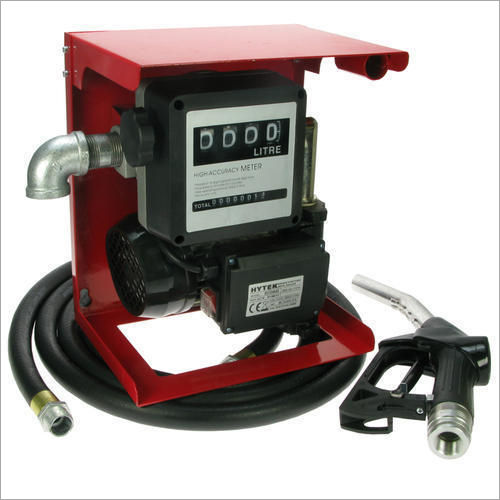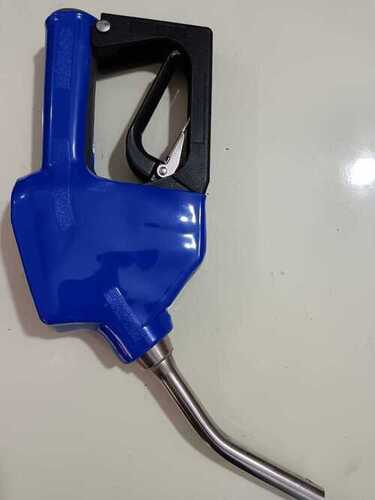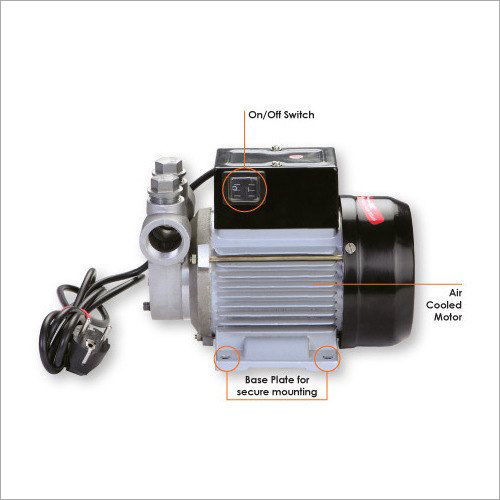

Diesel Fuel Transfer Pump
उत्पाद विवरण:
- रंग लाल काला
- उपयोग औद्योगिक
- प्रॉडक्ट टाइप डीजल ईंधन अंतरण पंप
- मटेरियल धातु
- पावर इलेक्ट्रिक
- फ्यूल टाइप डीजल
- प्रेशर मीडियम प्रेशर
- Click to view more
डीजल फ्यूल ट्रांसफर पंप मूल्य और मात्रा
- टुकड़ा/टुकड़े
- टुकड़ा/टुकड़े
- 10
डीजल फ्यूल ट्रांसफर पंप उत्पाद की विशेषताएं
- मीडियम प्रेशर
- औद्योगिक
- डीजल ईंधन अंतरण पंप
- डीजल
- लाल काला
- धातु
- इलेक्ट्रिक
डीजल फ्यूल ट्रांसफर पंप व्यापार सूचना
- 10 प्रति दिन
- 5-21 दिन
- कार्टून बॉक्स
- ऑल इंडिया
उत्पाद विवरण
डीजल फ्यूल ट्रांसफर पंप
इस सिंगल लाइन समानांतर प्रकार के डीजल फ्यूल ट्रांसफर पंप को कार्य करने के लिए 12v से 24v वोल्टेज रेंज की आवश्यकता होती है। इसकी क्षमता 40L/मिनट है और इसकी प्रवाह दर 40 से 70 के बीच है। इस पंप का हेड डायमेंशन 5 मीटर है। इस डीजल फ्यूल ट्रांसफर पंप का इनलेट/आउटलेट आयाम A A इंच है। स्टेनलेस स्टील या कास्ट आयरन से बना, इस पंप का ऑपरेटिंग सिस्टम सेंट्रीफ्यूगल पंप के सिद्धांत पर निर्भर करता है।
इसमें कॉपर या स्टेनलेस स्टील इम्पेलर, मैकेनिकल या पैकिंग सील, शाफ्ट, बेयरिंग, डबल सक्शन सीलिंग रिंग आदि जैसे मानक सामान शामिल हैं। उत्पाद विवरण: वोल्टेज | 12 वी |
क्षमता | 40 एल/मिनट |
अधिकतम प्रवाह दर | 40-70 |
हेड | 5 मीटर |
वर्तमान | 12V 24V 220 VAC इनलेट |
और आउटलेट |
3/4" सामग्री धातु

Price: Â
- 50
- 100
- 200
- 250
- 500
- 1000+







 English
English Spanish
Spanish French
French German
German Italian
Italian Chinese (Simplified)
Chinese (Simplified) Japanese
Japanese Korean
Korean Arabic
Arabic Portuguese
Portuguese